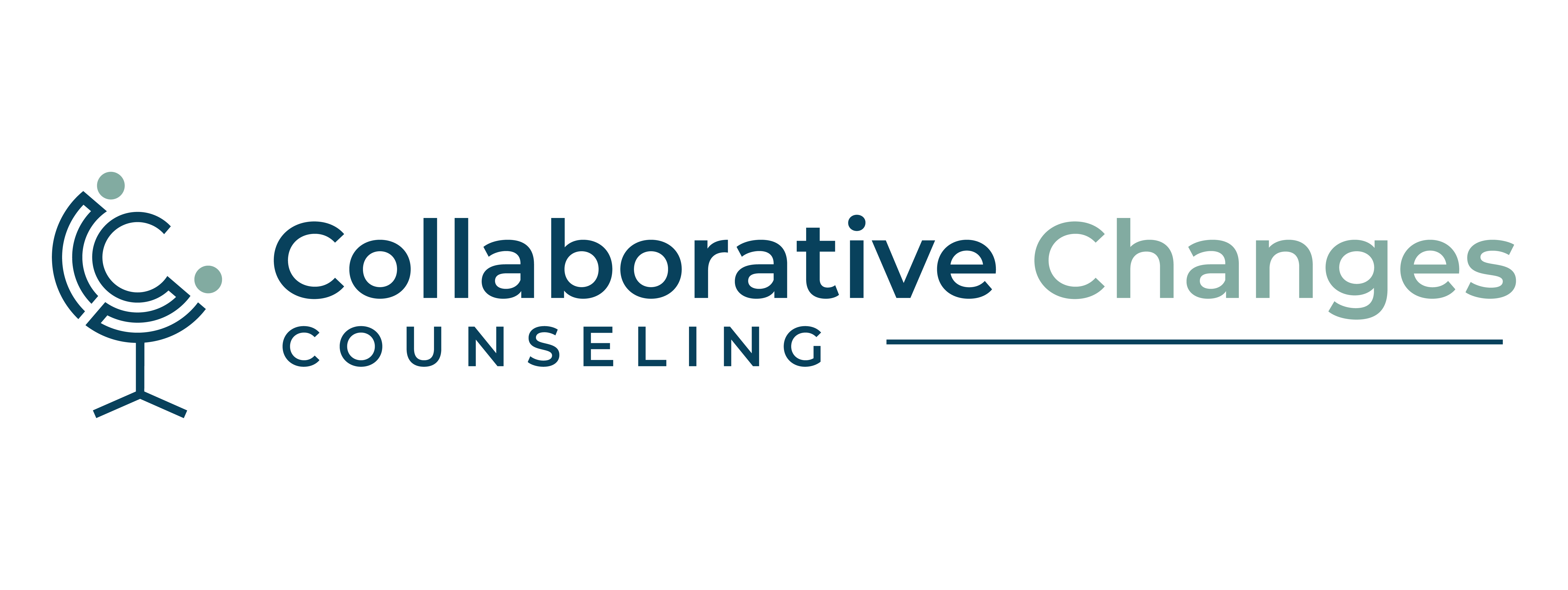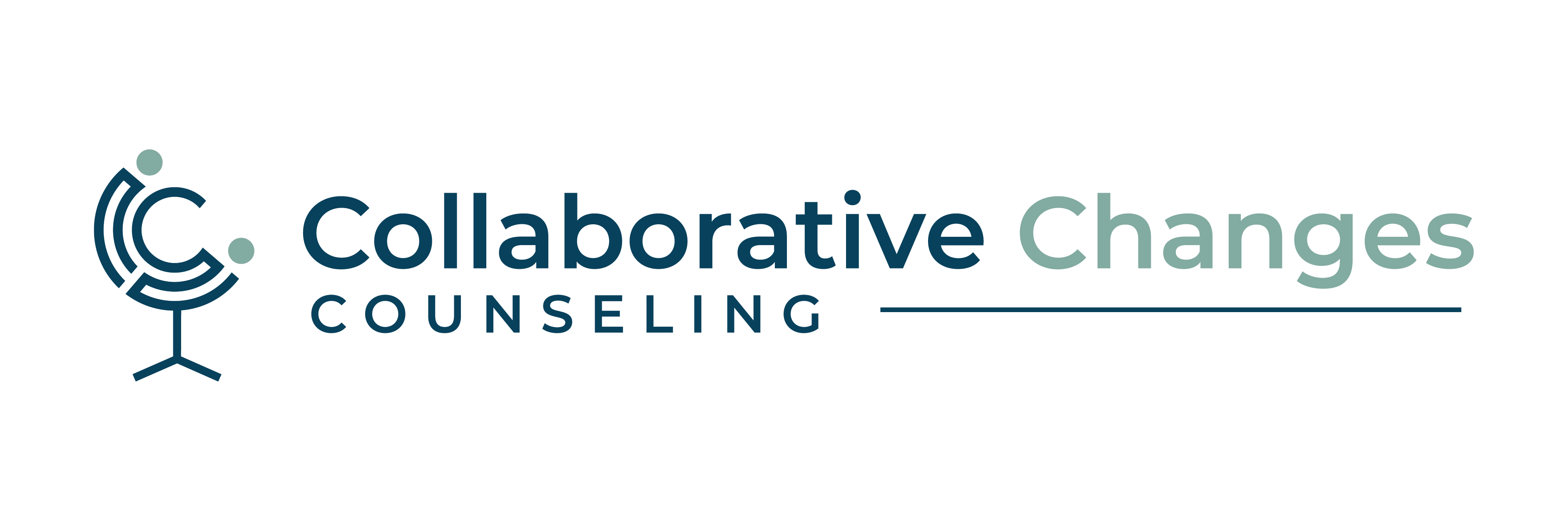Frequently Asked Questions
Receive Comprehensive & Supportive
Individualized Therapy At Collaborative Changes Counseling
Scheduling Questions
What are your hours?
Our hours are Monday – Thursday, 9:00 am – 7:00 pm CT.
How long are the sessions?
Standard sessions are 50 minutes. However, if interested, you can schedule double sessions (100 minutes) anytime you like with advanced notice. Double sessions are beneficial for couples first intake appointment because there is often considerable information to discuss.
Where do we meet?
Currently, all of our sessions are done via telehealth. You can skip the traffic, crowded lobbies, and have your session wherever you have Internet access. This can be at home, in your office, in a parking lot, in a park, or in your bed, if you prefer. Your counselor will literally meet you where you are.
Can I schedule Online?
The online portal is an easy way for you to schedule sessions at your convenience from the comfort of your home 24/7. Click ‘Schedule A Session’ to access the client portal. You can schedule through the client portal as a first-time or existing client.
Questions About Therapy
What is the first step in starting therapy?
If you are ready to schedule an appointment, click ‘Schedule A Session’ to schedule an intake appointment through the client portal. Choose ‘New Client Intake Session – TELEHEALTH Video.’
NOTE: All new clients must complete intake forms through the client portal at least 24 hours before our first session. If you do not receive these documents once we confirm your appointment, please check your spam/junk folder. If you fail to submit completed paperwork 24 hours in advance, we will cancel your appointment.
What can I expect at the first session?
First sessions are known as intake sessions. We know it is awkward meeting a stranger for the first time, so we do our best to make these sessions as casual and comfortable as possible.
The session is approximately 50 minutes long. During the first part of the session, the counselor will go over expectations and approaches to counseling. This session is where you get to know more of the therapist’s approach to counseling and get an idea of what to expect through the process of therapy.
The counselor also will cover some logistics, including initial paperwork, informed consent, privacy, and practice policies. The second part of the intake session is a more fluid conversation where the counselor gets to know you. This session is where you discuss your background, what brings you into counseling, and begin identifying and setting goals so the therapeutic process can start.
I’ve never talked to anyone. I’m used to handling things on my own. Aren’t people who go to therapy considered weak?
Not at all. We believe it’s quite the opposite. People who ask for help know when they need it and dare to reach out. Everyone needs help now and then. But it’s not just the sick who see a doctor.
Healthy people visit doctors for checkups, and professional athletes have personal trainers to improve their performance. Seeking help does not indicate there is something wrong with you. In our work together, we’ll help you explore and identify your strengths and implement them to reduce the influence of whatever problems you are facing.
What’s the difference between talking to you or my best friend or family?
I believe friends and family are great and helpful. But then, sometimes they are not. They are a big reason many people come to therapy in the first place. The difference is between someone who can do something (the supportive kind of friend and family) and someone who has the training and experience to do that same thing professionally.
A mental health professional can help you approach your situation in a new way – teach you new skills, gain different perspectives, listen to you without judgment or expectations, and help you listen to yourself. Furthermore, counseling is completely confidential. You won’t have to worry about others “knowing my business.”
Lastly, if your situation evokes a great deal of negative emotion, confiding in a friend or family member may cause you to avoid that person once you feel better because seeing them reminds you of that difficult time in your life.
How does it work? What do I have to do in sessions?
Because each person has different issues and goals for counseling, it will differ depending on the individual. We meet people where they are now and discuss what they want from the counseling experience. There is no long list of ‘have to dos’ – all you have to do is show up.
After about 2-4 sessions, you will get a feel of how the rhythm of therapy goes. You’re not coming for a lesson, TED talk, or class. We’re not going to tell you what to do. Counseling is collaborative, and much of it is you learning about yourself through internal exploration and then seeing the path forward.
How long will counseling take?
Everyone’s circumstances are unique to them. The length of time counseling can take to allow you to accomplish your goals depends on your desire for personal development, your commitment, and the factors that are driving you to seek counseling in the first place.
Some people can get what they want out of counseling in only a few sessions. Others can come for a year or longer. The length of time depends on what you want from the experience and what you get out of it.
Usually, people will start with one session a week. After they experience some progress, sessions become less frequent, going to every other week, once a month, and then on an as-needed basis.
Questions About Payment
How much does it cost?
For scheduling with Jason, it is $180 per 50 minute session. Any other associate level, it is $125 per 50 minute session with no insurance accepted.
Are you ready to take the next step and schedule an appointment?
If so, schedule a session.
What if I have more questions?
We are happy to answer questions not covered here. All you need to do is contact us.
Contact us to get started
Serving Florida and Texas
Phone
(281) 628-4194

Site Owned by Collaborative Changes Counseling | Designed By LMR Digital Marketing

